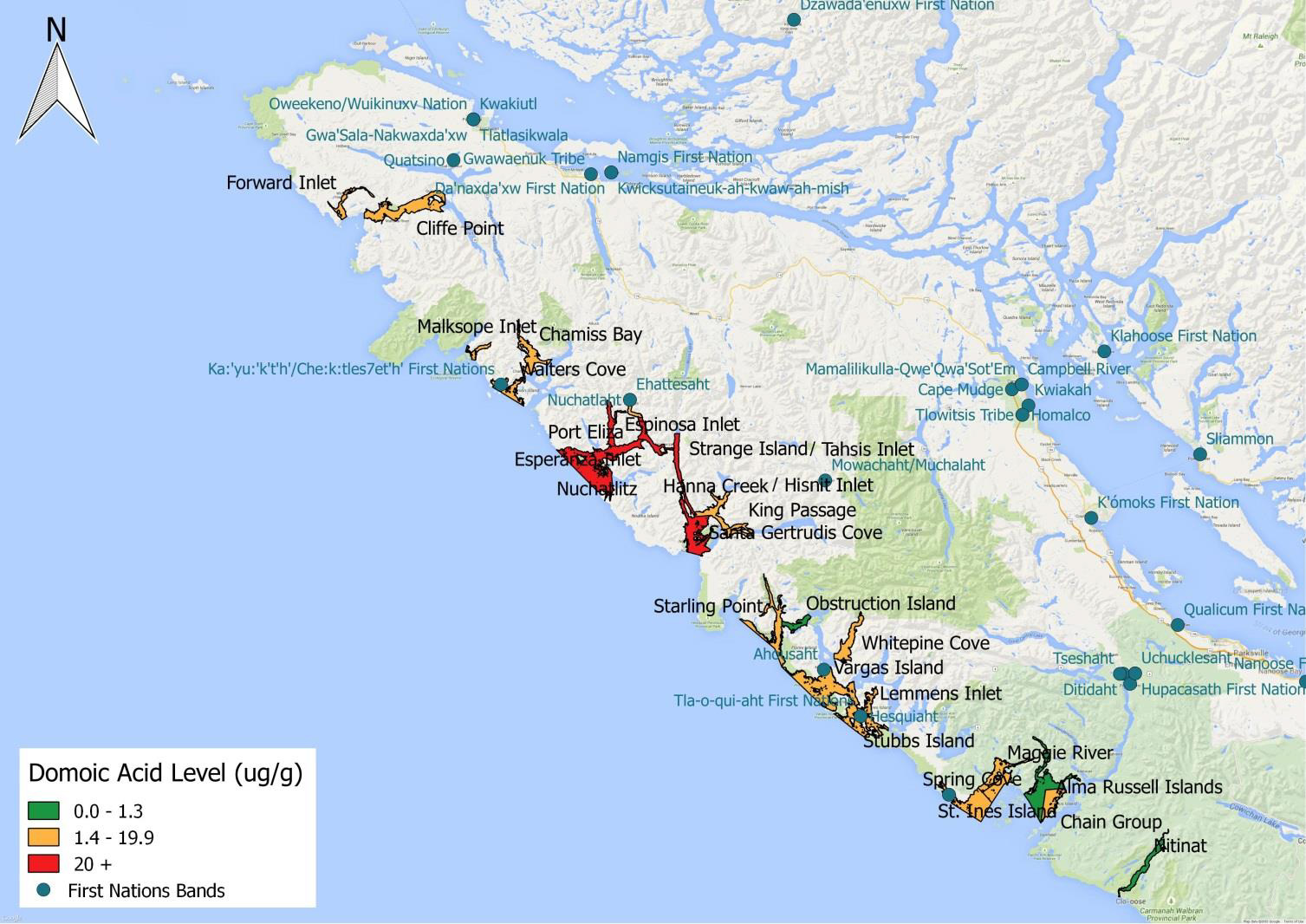
The First Nations Health Authority, Island Health and Northern Health are reminding First Nations harvesters not to harvest or eat clams, oysters, scallops, mussels, cockles, geoducks, gooseneck barnacles, whelks, periwinkles or the innards of lobster taken from areas closed for shellfish harvesting (see attached maps). Elevated levels of domoic acid, the toxin associated with amnestic shellfish poisoning (ASP), have been detected in some of these species.
Symptoms of ASP at lower levels include diarrhea, nausea, vomiting and cramps. At higher concentrations poisoning can include headache, disorientation, confusion and memory loss.
There have been no reported illnesses associated with this event to date.
Two important things to know about ASP:
1. Cooking does not render the shellfish safe
2. The best way to keep your family safe is not to harvest shellfish from closure areas
The Canadian Food Inspection Agency (CFIA) and Environment Canada is working with commercial fisherman in the area to ensure that impacted shellfish are not distributed into the human food supply. Shellfish that are harvested for sale are monitored and tested by the CFIA and Environment Canada and shellfish from an approved source are considered safe for consumption in moderate amounts.
Canadian Food Inspection Agency (CFIA) and Environment Canada is continuing to collect a variety of molluscan bivalve and shellfish samples from the area to monitor the level of the toxin.
Closure information can be found at http://www.pac.dfo-mpo.gc.ca/fm-gp/contamination/biotox/index-eng.html
Information on marine toxics can be found at http://www.healthlinkbc.ca/healthtopics/content.asp?hwid=ug2961
Since late May there has been a presence of the toxin in shellfish harvest areas on the West Coast of Vancouver Island and Haida Gwaii. Typically present in California, heightened toxin levels in BC are being attributed to warming ocean waters.
For information please contact: Dr. Shannon Waters: Senior Medical Officer, FNHA (604) 561-4777
Figure 1: Map of Impacted Communities - West Coast Vancouver Island

Figure 2: Map of Impacted Communities – Haida Gwaii
Download this notice in PDF format here (591 KB)

